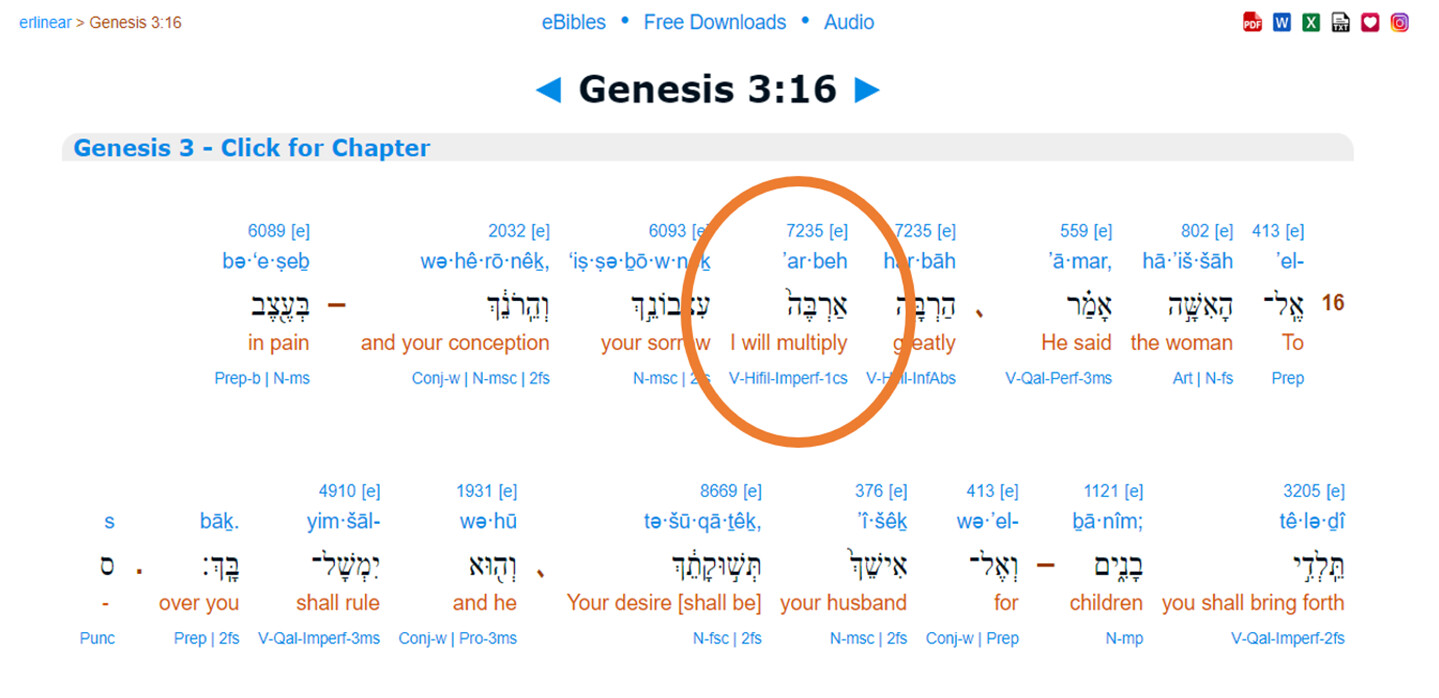you failed to read the 3 translations that I just gave you where that in fact is exactly the case…Latin vulgate, KJV and NIV! These are all translated into English and clearly make the claim pain came after sin.
The point is, none of the bible translations that I referenced even in the attached link in my previous post ignore the “sharp increase” in childbirth pain. Clearly, this “sharp increase” is a significant statement. One cannot simply state…oh but it hurts anyway. That would be a gross understatement and misleading.
As I said earlier, even if Genesis is read as an allegory, this is a very straightforward statement. The reality is one either accepts what is written or simply throw out your Bible and take up some other world view. The bible talks extensively about the “pains of child birth” even in spiritual terms when it refers to things other than literal childbirth. These pains are usually connected with sin.
Romans 8:22
20 For the creation was subjected to futility, not by its own will, but because of the One who subjected it, in hope 21 that the creation itself will be set free from its bondage to decay and brought into the glorious freedom of the children of God.22 We know that the whole creation has been groaning together in the pains of childbirth until the present time. 23 Not only that, but we ourselves, who have the firstfruits of the Spirit, groan inwardly as we wait eagerly for our adoption as sons, the redemption of our bodies. 24 For in this hope we were saved; but hope that is seen is no hope at all. Who hopes for what he can already see? 25 But if we hope for what we do not yet see, we wait for it patiently.
26 In the same way, the Spirit helps us in our weakness. For we do not know how we ought to pray, but the Spirit Himself intercedes for us with groans too deep for words.
Jeremiah 12:4
How long will the land mourn and the grass of every field be withered? Because of the evil of its residents, the animals and birds have been swept away, for the people have said, “He cannot see what our end will be.”
Theologically, there is no getting around this.
